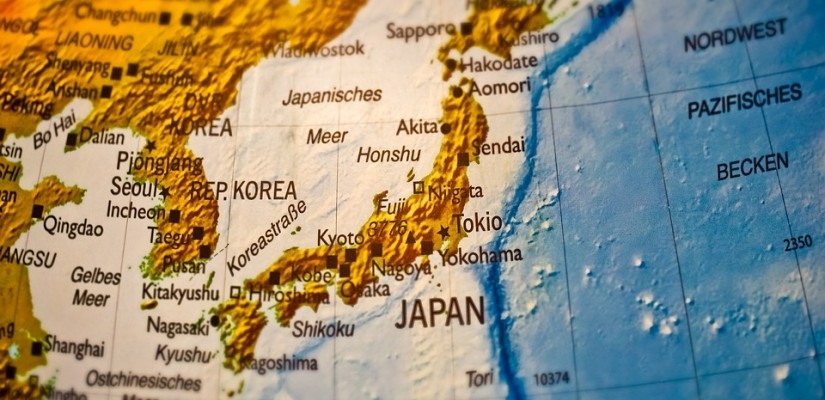The lack of exchange between Japanese Prime Minister Shinzo Abe and South Korean President Moon Jae-in during the 2019 G20 summit in Osaka seemed representative of the unraveling bilateral trade relations between South Korea and Japan. Japan’s imposition of targeted trade restrictions on South Korea’s technology sector illustrates the deep-rooted antagonism between the two countries over unresolved historical issues. Monitoring deteriorating relations between South Korea and Japan is particularly relevant as historically strained ties between Japan and China have warmed during the G20 summit in Osaka. Japan and China, Asia’s largest economies, confirmed that they would strengthen economic ties, which could put South Korea at an even greater disadvantage.
Following in the footsteps of the U.S.-China trade war, Japan’s newly imposed export regulations are yet another example of how economic leverage can be weaponized for political purposes. While Japan promotes free trade agreements across the world - signing treaties with the European Union (EU), the Association of Southeast Asian Nations (ASEAN), and Australia - South Korea appears to be the exception to the rule as Japan cites national security concerns as the trigger for the trade dispute.
On July 1, 2019, Japan limited exports of the chemicals hydrogen fluoride gas, fluorinated polyimide, and photoresists, which are necessary for the production of semiconductors in computers, smartphones, and televisions. Stating that these chemicals are “controlled items” that can be utilized for civil as well as military purposes, Japan expressed concern that South Korea may misuse these chemicals. South Korea’s business giant Samsung Electronics, as one of the world’s largest producer of semiconductors, is highly dependent on these chemicals and the South Korean economy, in turn, is reliant on the company’s productivity and success. Japan, which owns the world’s largest resources of the disputed chemicals, is able to leverage this advantage over South Korea. Additionally, Japan revoked South Korea’s status as a special trade partner by instating licensing requirements for items with potential military applications. Japanese sellers must now apply for licenses to export these designated commodities – a process that can take up to 90 days, substantially obstructing the supply chain and slowing down delivery.

Repercussions of the trade dispute could negatively affect Japan as much as it could harm the global smartphone industry. If trade restrictions continue for several months until South Korea’s imported chemical reserves deplete, the global smartphone market is likely to experience setbacks. The timing of such a disruption would be particularly inconvenient as global markets prepare for the rollout of the new 5G network. Moreover, South Korea would likely look for other options to procure necessary components for semiconductor production. In that case, Japan could lose a key buyer of its chemicals and sabotage itself in the long-term.
The immediate trigger of this trade dispute is a South Korean court ruling from 2018. Japan’s Nippon Steel was taken to court for utilizing forced labor during Japan’s occupation of South Korea (1910-1945) and was ordered to financially compensate South Korean survivors. Additionally, South Korean assets of Nippon Steel were seized after the court ruling. In a similar case in late 2018, Japan’s Mitsubishi Heavy Industries was ordered by South Korea’s Supreme Court to compensate former Korean forced laborers. Japan, however, argues that such controversies over financial compensation were fully settled with the 1965 Agreement on the Settlement of Problems Concerning Property and Claims and on Economic Co-operation between Japan and the Republic of Korea. Another persistent point of contention is the use of Korean “comfort women,” or forced sex workers, during the period of Japanese occupation. Conflict between the two states is perpetuated as South Korea emphasizes its status as the victim while Japan adds fuel to the fire through denial or provocation. Thus, differences over historical matters will not be set aside in the short-term and further mutual provocations are likely.
While the United States, a close ally of both Japan and South Korea, has traditionally been reluctant to ingrain itself too deeply in historical issues between the two Asian countries, it hopes to play a greater role in resolving this trade dispute. The US has sent Matt Pottinger, senior director for Asian affairs on the White House National Security Council, to South Korea and Japan to potentially help mediate and encourage constructive dialogue in the matter.
What could align South Korea’s and Japan’s interests and settle the dispute is an increased focus on shared long-term economic outlooks. Both counties will be struggling with the impact of an aging society on their national economies. Mutual civil engagement and understanding among the media, heads of business, teaching staff, and other citizens could also help placate disputes. In the short-term, however, this scenario seems improbable, considering that clashes between the two countries have arisen time and again for decades.
